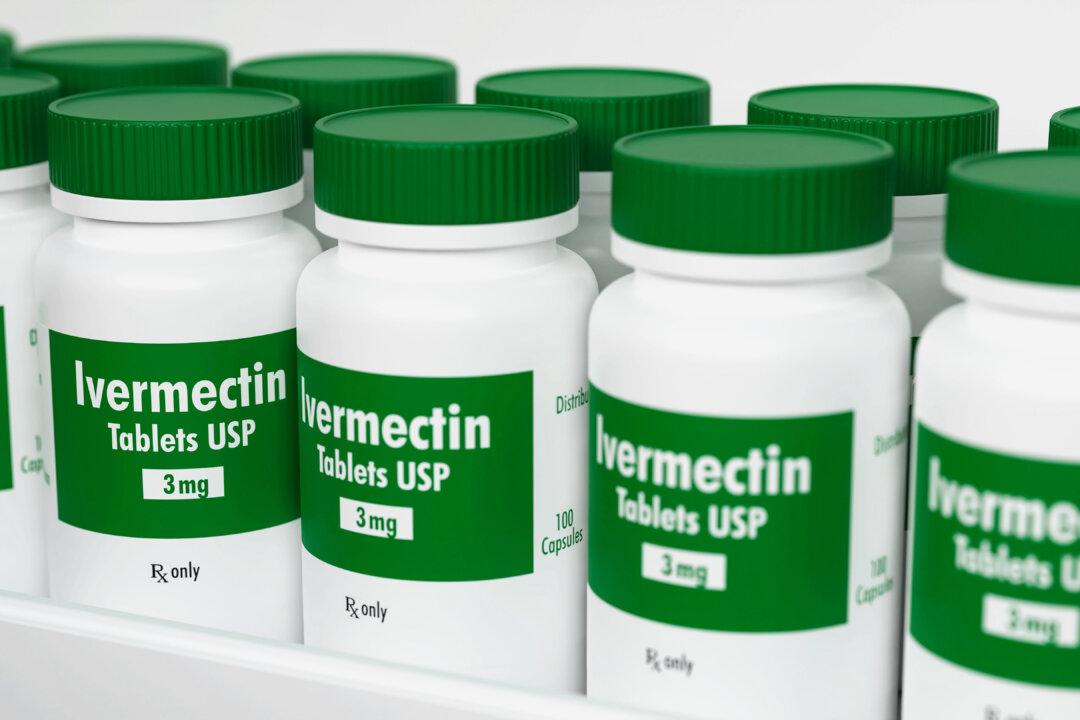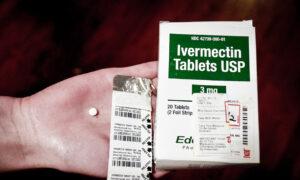
After years of controversy over using ivermectin to fight COVID-19, the U.S. Food and Drug Administration (FDA) finally gave in and agreed to remove its social media posts that urge people to stop using the drug.
Nature’s ‘Wonder Drug’ and Gift to Humans
Like many low-cost remedies, ivermectin is a gift from nature with a glorious history.Professor Satoshi Omura discovered ivermectin in Japanese soil in 1975. He isolated a bacteria—Streptomyces avermectinius from the soil and found a new compound, avermectin, the precursor to ivermectin. He then modified avermectin into a safer and more effective drug—ivermectin.
This drug has saved hundreds of millions of people around the world suffering from two parasitic diseases that have plagued tropical regions for centuries—river blindness and lymphatic filariasis. It has also been proven effective in treating many other parasitic infections, including gastrointestinal roundworms, mites, ticks, and scabies.
When a virus enters a human cell, it is carried by a vehicle-like transporter to replicate inside the cell and spread throughout the body. Ivermectin has the ability to block the function of this transporter, thereby preventing the virus from replicating and spreading.
Impressive Versatility
Modern drug development follows a one-disease, one-target principle, where drugs are designed to target specific pathogens.As a drug primarily extracted from nature, ivermectin has shown impressive versatility in its uses within the human body. Similar to other natural compounds, ivermectin has the ability to act on multiple targets simultaneously. These types of natural compounds can be thought of as a Swiss army knife, designed not for just one purpose, but with many potential uses waiting to be discovered.
Initially, ivermectin was found to have a specific target, paralyzing certain muscles in worms while having little effect on mammals.
Use in Treating COVID-19
When a new viral outbreak occurs, scientists typically test existing drugs for efficacy, as developing new drugs within a short timeframe is often impossible. An example of this is SARS-CoV-2.Scientists considered using ivermectin as a potential solution, and it proved to be effective, resulting in one success after another.
It has also demonstrated efficacy in specific human studies.
These observational studies have a strict level of control and exclude the bias from confounding factors in treated and non-treated groups, presenting an advantage over randomized controlled trials (RCT).
If a drug has treatment potential and is relatively safe, doctors should be allowed to use it off-label as long as they follow the correct human dosage.
Limitations and Cautions
While every drug has its benefits, they should always be taken responsibly due to potential side effects.More to Be Corrected
The labeled indications of an approved drug are often limited due to sluggish industry procedures or knowledge gaps. As a result, doctors in the United States are allowed to prescribe drugs off-label for a purpose other than the one for which the drug was approved.Despite strong clinical evidence for the use of ivermectin in COVID-19 treatment, the drug has been largely underutilized and has even been banned by authorities for non-scientific reasons.
As noted at the beginning of the article, the recent settlement of the ivermectin case is a significant step in reducing the FDA’s excessive involvement in the relationship between doctors and patients. Many lives could have been saved if ivermectin and other early treatments had been made available instead of being ignored, vilified, and underutilized.
What constitutes genuine science? And what is the appropriate path to advance science and medicine?
Humans may not fully appreciate the real benefits and values of nature, including its role in preventing epidemics.
Since the outbreak of COVID-19, a silent war started between those pursuing cutting-edge technology and those favoring more traditional approaches.
One side pursuing advanced technology has chosen to develop vaccines, even utilizing mRNA technology despite its immaturity. This has led to an unprecedented, bold and massive experimentation in hundreds of millions of humans.
The other approach involves looking inward, improving our diet and lifestyle, balancing our immunity, and utilizing natural remedies.
This is not to say we shouldn’t develop new drugs or vaccines; it’s undoubtedly positive if they are effective. However, we should not let human arrogance, money, or politics blind us and tarnish real science.
The ultimate goal of scientific research is to benefit people—not solely to pursue advanced medical treatments.
Advanced pharmaceuticals do not always equate to superior medications, just as everyone is aware that high-tech, synthetic foods are not optimal for our health.
When Hippocrates, the father of Western medicine, pioneered the systematic study of clinical medicine, he could not have envisioned this present-day scenario.
How far have we strayed? When will we abandon these harmful ideas and return to the right path?


No comments:
Post a Comment